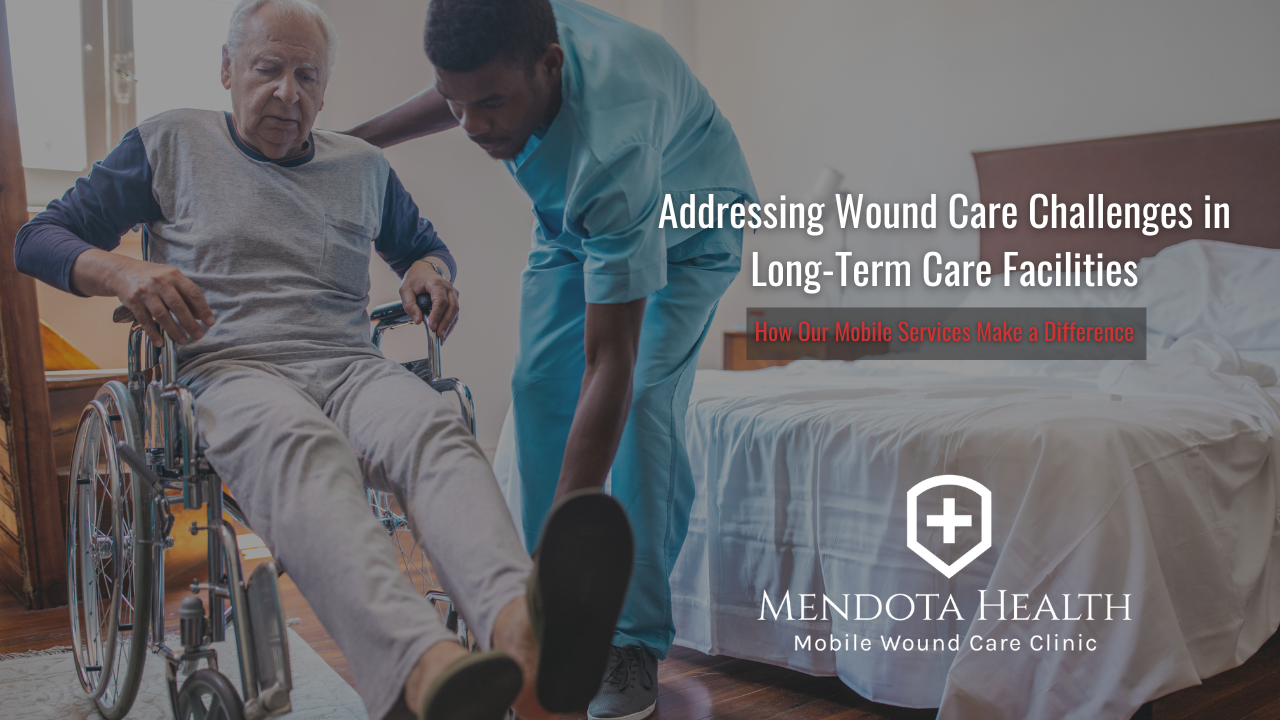
24 Jun Wound Care Challenges in Long-Term Care
How our Mobile Wound Care Services Make a Difference
In long-term care facilities, providing comprehensive and effective wound care is a significant challenge. With an aging population and the prevalence of chronic conditions such as diabetes and vascular diseases, the incidence of wounds that require specialized care is on the rise. As a national mobile wound care company, we understand the unique needs of long-term care facilities and are excited to introduce our specialized wound care services tailored to this setting.
The Challenges of Wound Care in Long-Term Care Facilities
High Incidence of Chronic Wounds: Residents in long-term care facilities are often at a higher risk of developing chronic wounds, such as pressure ulcers, diabetic foot ulcers, and venous leg ulcers. These wounds require specialized, ongoing care to prevent complications and promote healing.
Limited Access to Specialized Care: Many long-term care facilities lack immediate access to wound care specialists. This can lead to delays in the initiation of appropriate treatment, increasing the risk of wound deterioration and infections.
Resource Constraints: Staff in long-term care facilities are often stretched thin, balancing multiple responsibilities. This can impact their ability to provide the intensive wound care management that some residents require.
Regulatory Compliance and Documentation: Maintaining compliance with regulatory standards and ensuring thorough documentation of wound care can be a daunting task for facility staff. Accurate and timely documentation is crucial for both regulatory compliance and optimal patient outcomes.
How Our Mobile Wound Care Services Address These Challenges
Expert Wound Care at Your Doorstep: We bring a team of highly trained wound care specialists directly to your facility. Our professionals are experienced in the latest wound care techniques and technologies, ensuring that residents receive the best possible care without delay.
Comprehensive Wound Assessments and Treatment Plans: Our specialists conduct thorough assessments of each wound, considering the resident’s overall health and medical history. We then develop individualized treatment plans that incorporate evidence-based practices to promote healing.
Ongoing Monitoring and Adjustments: Wound care is not a one-time event but a continuous process. Our team provides regular follow-up visits to monitor progress, adjust treatment plans as needed, and address any emerging issues promptly. This ensures that wounds are managed effectively over time.
4. Streamlined Documentation and Compliance: Our mobile services include comprehensive documentation of all wound care activities, ensuring compliance with regulatory standards. We provide detailed records reducing any issues with compliance.
The Benefits of Partnering with Us
By partnering with our mobile wound care services, long-term care facilities can experience several key benefits:
Improved Resident Outcomes: With expert care and regular monitoring, residents experience faster healing times and reduced complications.
Enhanced Staff Efficiency: Our services alleviate the burden on facility staff, allowing them to focus on other critical aspects of resident care.
Cost Savings: Preventing wound complications and hospitalizations translates to significant cost savings for facilities.
Regulatory Confidence: Our thorough documentation and adherence to best practices ensure that your facility remains compliant with all relevant regulations.
At Mendota Health, we are committed to enhancing the quality of wound care in long-term care facilities. Our mobile services are designed to provide the specialized care that residents need, right where they need it. Contact us today to learn more about how we can support your facility in delivering exceptional wound care.
Together, we can make a difference in the lives of those who need it most.

